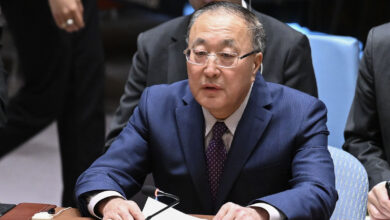
JALALABAD, Afghanistan/KABUL (Reuters) – Islamic State claimed responsibility for the shooting death of a female TV presenter and women’s rights activist in Afghanistan on Thursday, an attack that underscored an increasing trend of violence against journalists in the country.
Malalai Maiwand, a presenter at Enikas Radio and TV in the eastern province of Nangarhar, was killed along with her driver in the attack on their vehicle in the regional capital Jalalabad, taking the total number of journalists and media workers killed this year in Afghanistan to 10.
“She was on the way to the office when the incident happened,” said Attaullah Khogyani, spokesman for the provincial governor.
Nangarhar has been a hotbed of militant activity, most notably involving Islamic State, which issued its claim of responsibility via its Telegram communications channel, calling her a “pro-regime” journalist.
Maiwand, who was 25, was not the first in her family to be targeted. Five years ago, her mother, also an activist, was killed by unknown gunmen. Enikas has been targeted before, with its owner, Engineer Zalmay, kidnapped for ransom in 2018.
“With the killing of Malalai, the working field for female journalists is getting more smaller and the journalists may not dare to continue their jobs the way they were doing before,” Nai, an Afghan media advocacy group, said in a statement.
Last month, Elyas Dayee, a Radio Azadi journalist, was killed in a bomb blast in the southern province of Helmand, and Yama Siawash, a former TOLOnews presenter, was killed in a similar blast in Kabul.
The Afghan government, the German Embassy, European Union delegation and Britain’s ambassador condemned growing attacks on journalists and activists.
Afghan interior ministry spokesman Tariq Arian said that in the last decade and a half, the vast majority of journalists killed had been victims of Islamist Taliban militants.
International donors and governments have voiced apprehension about a possible reversal of progress on women’s rights over the last two decades if the Taliban return to any sort of power with the withdrawal of foreign troops from the country scheduled next year.
The Taliban’s ultra-hardline rule in 1996-2001 was marked by oppressive laws for women up until the group was toppled following a US-led invasion of Afghanistan.
Reporting by Abdul Qadir Sediqi in Kabul and Ahmad Sultan in Nangarhar; Additional reporting by Hesham Abdul Khalek in Cairo; Writing by Gibran Peshimam and Mark Heinrich
IMAGE: Afghan men pray near the coffin of journalist Malalai Maiwand, who was shot and killed by unknown gunmen in Jalalabad, Afghanistan December 10, 2020. REUTERS/Parwiz




